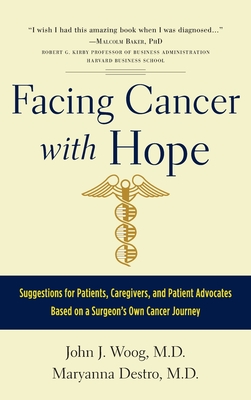 SASOPRS: John, I understand that you and your family have faced a major medical challenge. Can you tell us a little about your story?
SASOPRS: John, I understand that you and your family have faced a major medical challenge. Can you tell us a little about your story?
John: Sure. I was in my mid-40s with two young kids when I was diagnosed with advanced stomach cancer. Despite aggressive surgery and postop chemo, I developed liver metastases. I failed additional conventional chemo, RF ablation, Phase 2 and 1 clinical trials, and partial hepatectomy prior to responding to last-ditch experimental therapy. I’ve fortunately remained stable for the past 11 years. While, like many cancer patients, I have ongoing medical issues and concerns about recurrent or secondary malignancy, I’m profoundly grateful to be here.
SASOPRS: That’s remarkable. I heard that you and your wife recently published a book about your story. What motivated you to write about your experiences?
John: When I was diagnosed, and especially when my metastatic disease was progressing relentlessly, we wished that there was a step-by-step reference to help guide us. In addition, over the years we’ve shared advice with a soberingly large number of family members and friends (including dear ASOPRS colleagues) who have faced their own challenges with cancer. Several folks asked if we would consider sharing our lessons learned during this process.
SASOPRS: Can you share a few take-home points from “Facing Cancer with Hope: Suggestions for Patients, Caregivers, and Patient Advocates Based on a Surgeon’s Own Cancer Journey”?
John: While every patient is different and the book is not a substitute for personalized medical guidance, here are a few general suggestions based on our journey:
- Advocate for yourself or your family member or friend.
- Become a mini-expert on your type of cancer and on the molecular biology of your particular tumor. Although many of us SASOPRS members didn’t have a lot of oncology training during med school, we have the basic biology background and skills to use resources such as Pubmed and clinicaltrials.gov to learn about our malignancies and related conventional and experimental treatment options. Related to this, · Be prepared and willing to engage in shared decision-making with your oncologist.
- Think two steps ahead. Have a backup plan in case your current line of treatment fails.
- Set (or reset) priorities. This simple but profound concept reflects one of the important life lessons I learned during my fellowship with Dick Dortzbach and Brad Lemke 40 years ago. Despite very busy schedules, both Dortz and Brad made it a priority to be present for their (then) school-aged kids’ activities. Concentrating on what I could do to best support my wife and kids has proven to be a very valuable strategy for me as we’ve navigated my cancer journey.
- Maintain nutrition and (safe) regular exercise.
- Seek support. We have been, and remain, deeply touched by the incredible outpouring of support that we have received from our ASOPRS family. Professional contacts enabled by ASOPRS colleagues in East Asia (where stomach cancer is common) provided useful suggestions in terms of my care. Separately, as discussed in the book an email exchange with a very thoughtful research scientist proved pivotal in the identification of the experimental treatment that ultimately proved effective in my case.
- Never give up. Our understanding of cancer biology and the development of new treatment options are advancing at an unprecedented pace. Keep going and never give up hope.

